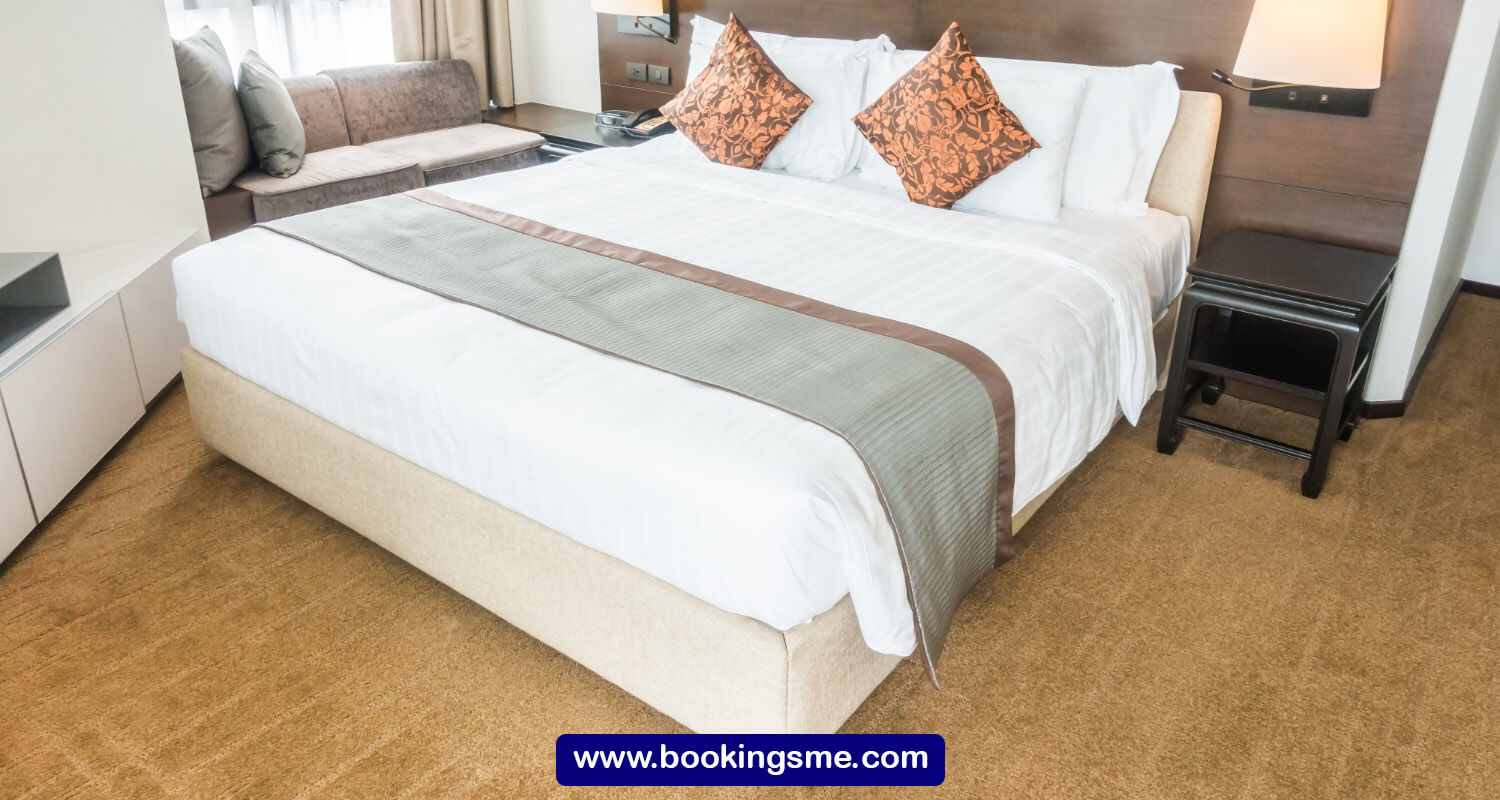A good night’s sleep is a crucial element of any hotel stay, and the quality of the mattress plays a pivotal role in ensuring guests’ comfort. Hotels, aiming to provide a pleasant and rejuvenating experience, often invest in high-quality mattresses. However, these mattresses undergo wear and tear over time, leading to the inevitable question: how often do hotels replace mattresses?
Read also: What Sheets Do Hotels Use
The Lifecycle of Hotel Mattresses:
The lifespan of a hotel mattress depends on various factors, including the quality of the mattress, the level of usage, and the hotel’s budget constraints. On average, hotels tend to replace mattresses every 7 to 10 years. This timeframe is based on industry standards and recommendations from mattress manufacturers, who suggest that after a decade of continuous use, mattresses may begin to lose their supportive properties.
Quality Matters:
The frequency of mattress replacement is closely tied to the initial quality of the mattress. High-end hotels often opt for premium mattresses designed to withstand prolonged use and maintain their structural integrity. These mattresses may have a longer lifespan, with some lasting up to 12 years or more. In contrast, budget-friendly hotels may choose more affordable options, necessitating more frequent replacements.
Hotel Ratings and Guest Satisfaction:
Maintaining a high standard of guest satisfaction is crucial for hotels, and the condition of mattresses plays a significant role in achieving this goal. Hotels with higher ratings often prioritize mattress replacements to ensure a consistently comfortable and enjoyable stay for their guests. The frequency of mattress replacements is, therefore, a strategic decision that impacts the hotel’s reputation and overall guest experience.
Factors Influencing Mattress Wear and Tear:
Several factors contribute to the wear and tear of hotel mattresses. The primary factor is, of course, usage. Hotels with high occupancy rates and a steady influx of guests are likely to see more rapid mattress deterioration than those with lower occupancy. Additionally, the type of guests—whether business travelers, families, or vacationers—can impact the wear patterns on mattresses.
Hotel Cleaning Practices:
Another critical aspect influencing the longevity of hotel mattresses is the cleaning practices implemented by the hotel staff. Regular cleaning and maintenance can extend the life of a mattress, but improper cleaning methods or the use of harsh chemicals can accelerate wear. Hotels with stringent cleaning protocols are more likely to prolong the lifespan of their mattresses, thus reducing the frequency of replacements.
Economic Considerations:
While hotels prioritize guest satisfaction, economic considerations also play a significant role in determining the frequency of mattress replacements. Budget constraints may lead some hotels to extend the lifespan of mattresses beyond the recommended timeframe. However, this decision requires a delicate balance, as compromising on mattress quality can result in negative guest feedback and impact the hotel’s reputation.

How Often Do Hotels Replace Mattresses
Technological Advancements in Mattress Design:
In recent years, technological advancements in mattress design have introduced materials and construction techniques aimed at enhancing durability. Some hotels may invest in innovative mattresses that offer improved longevity and resilience to wear and tear. These advancements can influence the decision-making process regarding when and how often hotels choose to replace their mattresses.
Environmental Sustainability:
In an era where environmental sustainability is a growing concern, hotels are increasingly mindful of the ecological impact of their operations. The disposal of old mattresses contributes to landfill waste, prompting some hotels to explore environmentally friendly options.
Some establishments may choose to refurbish or recycle mattresses, extending their lifespan and reducing the environmental footprint associated with frequent replacements.
Read more: Do Hotels Wash Comforters
Guest Feedback and Trends:
Hotels actively listen to guest feedback to stay attuned to changing preferences and expectations. Trends in the hospitality industry may influence decisions related to mattress replacements. For example, a shift toward eco-friendly and organic materials in mattress manufacturing might prompt hotels to update their bedding to align with evolving consumer preferences.
Practical Tips for Prolonging Hotel Mattress Lifespan:
- Invest Wisely: Prioritize durable, high-quality mattresses to withstand the demands of frequent use, ensuring a longer lifespan and sustained guest comfort.
- Routine Maintenance: Implement regular cleaning using mild, approved cleaners to preserve mattress hygiene, preventing premature wear and maintaining a fresh sleeping environment.
- Rotate and Flip: Extend mattress life by regularly rotating and flipping. This practice promotes even wear, preventing sagging and ensuring consistent support for guests over time.
- Protective Layers: Shield mattresses with waterproof protectors to defend against spills, stains, and allergens. This protective layer not only preserves cleanliness but also enhances the mattress’s overall durability.
- Stay Updated: Stay attuned to guest feedback and industry trends. Adapting mattresses to evolving preferences and integrating technological advancements ensures that accommodations remain in line with guest expectations and contribute to longer mattress lifespans.
Conclusion:
In conclusion, how often do hotels replace mattresses, the frequency with which hotels replace mattresses is a multifaceted decision influenced by factors such as mattress quality, hotel ratings, usage patterns, cleaning practices, economic considerations, technological advancements, sustainability concerns, and guest feedback.
Striking the right balance between guest satisfaction and budget constraints is a delicate task for hoteliers. Ultimately, the lifecycle of hotel mattresses is a dynamic aspect of the hospitality industry that reflects the ongoing commitment to providing a restful and enjoyable experience for guests.
How often do hotels replace mattresses?
Hotels typically replace mattresses every 7 to 10 years, maintaining a balance between guest comfort and budget considerations.
Do hotel cleaning practices impact mattress lifespan?
Yes, regular cleaning with approved agents preserves mattress hygiene, preventing premature wear and extending overall durability.
Are mattress protectors necessary in hotels?
Absolutely. Mattress protectors act as a shield against spills, stains, and allergens, maintaining cleanliness and prolonging mattress life.
Why is mattress quality crucial for hotels?
Higher-quality mattresses last longer, with premium options enduring up to 12 years, ensuring sustained comfort and guest satisfaction.
How does guest feedback influence mattress replacements?
Guest satisfaction is paramount. Hotels actively consider feedback to align with guest expectations, ensuring timely and relevant mattress replacements.


